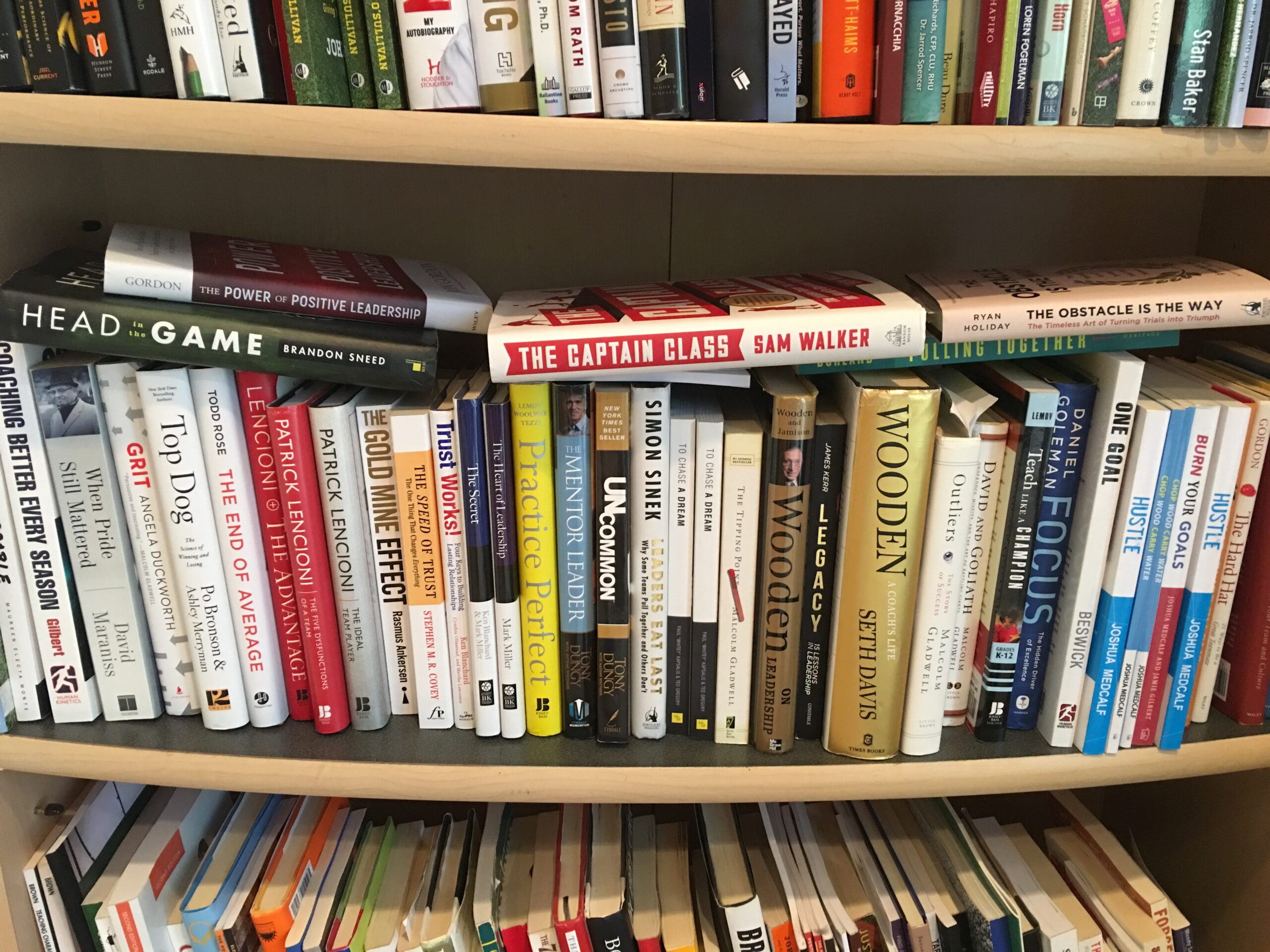In February 2016 I was speaking at an all day workshop in Montrose CO, and as I was finishing my morning setup the participants began arriving. It was the usual collection of coaches, parents, city recreation administrators, city officials and some younger kids decked out in the gear of their respective sports team. Then another group of teenagers walked in with a gentleman that I figured must be their coach, although something about this group made me pause.
They took a seat in the front of the room, and I went over and introduced myself, and had a great talk with a bunch of the kids and their coach Bryant. I asked if they were all on a team together, and they said no, we live together. It turned out that these boys were from the Robert A. Brown Center for Youth, a shelter, detention center and transitional living program for boys. Little did I know how much their presence that day would crystalize for me everything that the Changing the Game Project does to make youth sports a better environment for our kids.
We got to a point in the day where we had a group discussion about why kids quit sports, and one by one these boys stood up and told their stories. Every story began with a smile as they told about the sports they loved as a kid, but eventually led to a sadder place.
“I had a basketball coach that disrespected me and made me feel like I was worthless.”
“I had a football coach that never put me in the game at 12 years old, and I could never understand why I came to every practice and tried my best but he did not care enough to let me play a single play.”
“I used to love soccer, but some kids on my team made it miserable whenever I made a mistake. They made fun of me, and the coach did nothing- he just laughed with them.”
Every one of them had quit sports by age 13.
The scariest part: every one of them could trace a direct line between the day they walked away from sports, and their current placement in a residential home for things like substance abuse, stealing, fighting, and more.
When they walked away from sports, they walked into a very different life, and now they were clawing their way back out.
As I sat on that stage listening to their stories, I have never felt prouder of a group of boys than those boys. They had courage enough to stand up and tell their story in front of coaches, teachers, even their mayor. They owned up to the mistakes they had made. But all I could think was “when, as adults, are we going to own up to our mistakes? When are we going to admit that we are responsible for driving these kids out of sports?”
When are we going to admit that sports freakin’ matter and that we have a responsibility to make them serve the needs, values and priorities of our kids?
Want to know why sports matter? Here are four reasons:
Sports can teach values
Sports do not teach character and values, unless they are intentionally taught by coaches. Youth sports might be our last great hope to teach and maintain the traditional American values of perseverance, humility, integrity, compassion, courage, and the like. Our schools are struggling to do it. The Internet is not doing it. And popular culture is certainly not doing it.
 A 2011 study by UCLA psychologists Yalda Uhls and Patricia Greenfield examined television data over the past fifty years. Their study demonstrated that the values expressed by the shows most popular with kids ages nine to eleven have changed drastically during that time. From 1967 through 1997, shows such as The Andy Griffith Show, Laverne and Shirley, Growing Pains, and Sabrina the Teenage Witch dominated the ratings in this demographic. The values represented by the shows changed very little during that period. The five most expressed values were community feeling, benevolence, image, tradition, and popularity. At the bottom of the list were fame, physical fitness, hedonism, spiritualism, and financial success.
A 2011 study by UCLA psychologists Yalda Uhls and Patricia Greenfield examined television data over the past fifty years. Their study demonstrated that the values expressed by the shows most popular with kids ages nine to eleven have changed drastically during that time. From 1967 through 1997, shows such as The Andy Griffith Show, Laverne and Shirley, Growing Pains, and Sabrina the Teenage Witch dominated the ratings in this demographic. The values represented by the shows changed very little during that period. The five most expressed values were community feeling, benevolence, image, tradition, and popularity. At the bottom of the list were fame, physical fitness, hedonism, spiritualism, and financial success.
Fast forward to 2007, and the most popular shows, American Idol and Hannah Montana, exemplify the new top five values of fame, achievement, popularity, image, and financial success, closely followed by self-centeredness, ambition, conceitedness, and materialism. The bottom five values are spiritualism, tradition, security, conformity, and benevolence. The emergence and prevalence of new technology, such as computers, mobile Internet, and hundreds of television channels, can be all encompassing and always present. It has given popular culture a new level of influence upon our children’s lives.
Today, many of the shows aimed at our nine- to eleven-year-olds are about children who are seeking fame through the entertainment industry. As a result, one study found fame has become the number one value that children ages nine to eleven aspire to. Another study found that being famous, attractive, and rich topped the list of the most important things for children under age ten. The result, says psychologist and parenting expert Dr. Jim Taylor, is that “these distorted values are definitely not going to prepare [kids] for life in adulthood where, for most of us, narcissism and aspirations of wealth and fame don’t usually play well with reality.”
Sports will help a child live a longer, healthier life
I am the parent of an 8 and 10 year old, and it is quite scary that research shows today’s children are the first generation ever to have a shorter life expectancy than their parents, by five years! Why? Inactivity! Take 60 seconds and watch this from Designed to Move:
Today nearly 2/3 of Americans are considered overweight, and some studies project that by 2030 nearly half of Americans will be obese. Our schools are cutting PE classes and recess, despite the evidence of definitive positive links between activity and learning (adding exercise might be scientifically prudent but sadly it won’t get a politician elected on an educational platform). What we know is that children who are active by ages 10-12 are 1/10 less likely to be obese, do better in school, far less likely to do drugs or get pregnant as teenagers, more likely to go to college, and more likely to raise active kids of their own. We have the power to give those 5 years back to the kids.
Sports teach courage, resilience, and grit
If there is a better place than sports to teach kids how to be courageous, determined, persistent, and patient, I do not know of one. Sports can teach kids to lead, to follow, to take responsibility, working with others, sportsmanship, and so much more. As this amazing story of blind pole vaulter Charlotte Brown shows, sport not only can develop character, it reveals it.
Every athlete, regardless of ability, has the opportunity to learn lifelong skills through sports, and every athlete deserves the opportunity to do so. As the Positive Coaching Alliance says, youth sports is a development zone not only for athletic skills, but for life.
Sports give a voice to the voiceless
This past August, my wife and I travelled to Cambodia to volunteer with an amazing organization called Coaches Across Continents, one of the world’s leading organizations in the sport for social impact movement. CAC runs program in dozens of countries, educating coaches and athletes and preparing them to be leaders and difference makers in their communities. From former child soldiers in Africa to children orphaned by the Haitian earthquake, CAC is changing lives. But it is their new initiative, ASK for Choice, that is giving a voice to a group that often has none across the world: women.
CAC has implemented programs across the globe and provided opportunities for girls to play in places where tribal elders and community leaders were quick to say “Girls, they don’t like to play sports.” Now, some of those programs have hundreds of girls playing sports, going to school, and making a difference. Check out the new “ASK for Choice” video, and consider volunteering (it will change your life like it did mine).
Sports matter to our culture, but sadly the entertainment value has begun to outweigh the educational value of sports, and it has trickled down to the youth level. Yet they could be so much more than that.
Sports matter because they can change lives. Sports matter because they might be the one positive in an otherwise crappy life for a kid. Sports matter because they can provide a child with a positive, influential role model in a life that may not have one. Sports matter because they reveal and develop character. Sports matter because they can give a voice to the voiceless.
Sports matter, as those amazing boys in Montrose, Colorado taught me, because they might keep a kid on the straight and narrow when other influences are leading him or her down a far darker path.
Sports matter for every kid, from the star quarterback to the kid who can barely run 10 yards without getting winded, but still has the courage to be in the arena, daring greatly.
Sports matter for every community that needs something to rally around.
Sports matter for everyone who wants a stronger, healthier nation.
It’s high time every one of us takes a stand and commits to doing them the right way.
Please leave a comment below about why you think sports matter, and if you have an inspiring story or video, post it below.













Comments